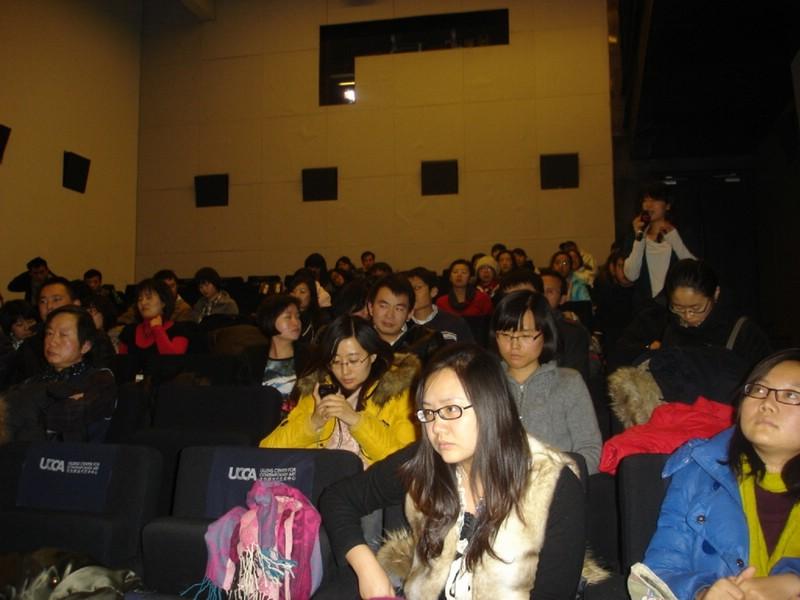Climate Change Science Salon
On the afternoon of 25 December 2010, a salon titled "Climate Change: When Science meets Politics " was held in Beijing at the UllensCenter for Contemporary Art in the 798 ArtDistrict. The event was organized by the Chinese Civil Climate Action Network with finacial support by the Energy Foundation. The salon had the goal to provide accurate information about climate change science to the wider public. Invited speakers included scientific climate change experts and Chinese civil society observers of the recently held UN climate change negotiations in Cancun. The discussion on the interlinkages of climate change science and political issues attracted more than 50 participants from civil society organizations, the media and the public.
Dr.Zhang Chengyi, chief scientist of the China Meteorological Administration, introduced the scientific background of climate change science and existing uncertainties. He further explained the scientific process, organisational structures and working mechanisms of the research institutions of the Intergovernmental Panel on Climate Change (IPCC), to show how the IPCC report is produced and the IPCC derives its conclusions. Through his explanations the salon participants gained insights into and objective understanding of how the IPCC ensures the integrity of their scientific research and publications.
Li Yan, climate change program director of Greenpeace, made the point that climate change science and politics are inseparable. Scientific knowledge provides the guidelines for mitigation of climate science andthe basis for adaptation actions. The IPCC climate change assessment report provides the scientific basis for the political climate negotiations and contributes inputs to the global climate negotiations in order to bring about global cooperation for addressing climate change.
Cheng Qian, consultant for the German NGO Germanwatch, shared her thoughts about the outcomes of the Cancun conference. The impressionsof the participants in Cancun can be best summarized as "best possible compromise, small expectations, less disappointment".
The Cancun outcomes are, on the one hand, the results of the lessons learned in Copenhagen, onthe other hand they also reflect a spirit of cooperation amoung the government delegates. As a result of the combined efforts of all countries, the Cancun Agreements contain among others the following concrete results:
la global long-term emission reduction target was agreed on in the Shared Vision text of the UNFCCC;
la Cancun Adaptation Framework to allow better planning and implementation of adaptation projects ;
ltechnology transfer mechanism
lthe establishment of a Green Climate Fund
lit recognized that the work of the working group of the Kyoto Protocolmust be completed as soon as possible and in a timely manner to prevent a gapbetween the first and second commitment of the Kyoto Protocol period.
Following the presentations, a discussion round gave the audience the chance to ask a range of questions to the panelists. Questions raised by the audience resulted in fruitful discussions about whether climate change being a conspiracy by Western countries to limit China's economic development, which was strongly dismissed by the experts. Also discussed was the influence of Chinese NGOs in the area of climate change on the government's position and the gaps in current scientific understanding of the climate change phenomenon.







